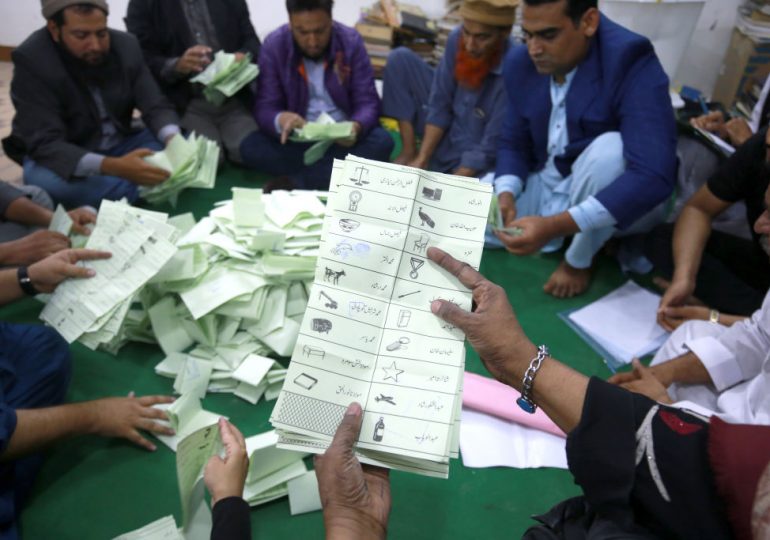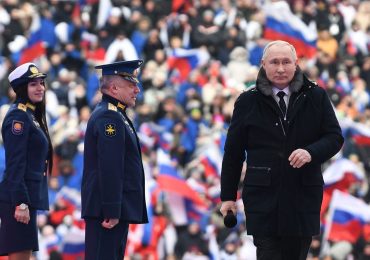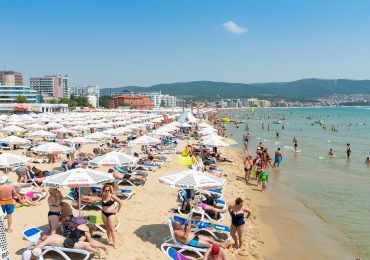He’s been shot, jailed, had his political party effectively banned, and name purged from mainstream media. But you just can’t keep Imran Khan down.
Preliminary results from Thursday’s election in Pakistan seem to show that independent candidates affiliated with Khan’s Pakistan Tehreek-e-Insaf (PTI) party have a chance of securing a plurality of legislative seats despite myriad irregularities, which continued through polling day, designed to hobble such an outcome.
[time-brightcove not-tgx=”true”]
The PTI already had its famed cricket-bat logo banned, and a nationwide suspension of cellphone networks on Thursday hindered party officials from informing supporters of their preferred independent candidate for each constituency. (The government claimed the blackout was for security reasons despite such measures being deemed illegal by Pakistan’s High Court.) In addition, exit polls were banned and the PTI complained that their agents were barred from monitoring polling stations. “The amount of rigging going on is beyond ridiculous,” Zulfi Bukhari, a former Minister of State under Khan, tells TIME.
Still, when results finally started trickling in—over 10 hours later than customary, which in itself observers say is highly suspicious—the PTI was neck and neck with the Pakistan Muslim League-Nawaz (PML-N) of three-time former Prime Minister Nawaz Sharif, with the Pakistan People’s Party (PPP) led by Bilawal Bhutto Zardari, son of assassinated ex-Prime Minister Benazir Bhutto, in third place.
Sharif is the preferred candidate of Pakistan’s powerful military, which, despite backing his ouster thrice in the past, recently allowed the 74-year-old back from exile in the U.K., quashed his corruption conviction, and repealed his lifetime ban from politics. Sharif’s speedy rehabilitation stood in stark contrast to the generals’ Khan-and-PTI purge.
“No one rules without the tacit support of the military,” says Maya Tudor, an associate professor of government and public policy at Oxford University. “What’s different this time is how overtly the military is targeting the PTI, because they have grassroots support and are technologically savvy.”
Yet even if the PTI against all odds secures a plurality of legislative seats, many obstacles to forming a government remain.
Since its lawmakers are officially independents, there’s no obligation for them to vote along party lines for key appointments, raising the prospect of coerced defections. Moreover, the PTI is not eligible to its share of the National Assembly’s 70 “reserved seats” for women and minorities that are divvied up according to a party’s proportion of the overall vote. And then there’s the fact that Khan, 71, remains in prison and was unable to stand as a lawmaker himself. Even before the vote, there were widespread rumors of a power-sharing pact between the PML-N and PPP, with Sharif serving as prime minister and Zardari as president. A coalition between the two remains the most likely outcome.
Still, the strength of PTI’s showing is a bloody nose for Pakistan’s military, which previously backed Khan before his 2018 election victory. However, the generals fell out spectacularly with the former national cricket captain and engineered his ouster in an April 2022 no-confidence vote. Since then, Khan has survived an assassination attempt and weathered a tsunami of over 180 legal challenges. In recent weeks alone, he received prison sentences totaling 31 years for corruption, leaking state secrets, and having an “un-Islamic” marriage.
Yet his popularity remained strong leading up to the vote, especially among young Pakistanis, with voters aged 18-35 comprising 45% of the nearly 130 million-strong electorate. “It’s very clear that the military was nervous and then to see PTI exceed expectations is absolutely a big blow,” says Michael Kugelman, director of the South Asia Institute at the Wilson Center.
The Pakistani public and political class now await the full results and, no doubt, much horse-trading to come. The nuclear-armed nation of 240 million can little afford a power vacuum with whoever ends up taking the top job facing no shortage of crises. Pakistanis are suffering with Asia’s highest inflation, which reached 29.7% year-over-year in December. The South Asian nation only narrowly avoided a sovereign default last summer due to a $3 billion IMF bailout and a new deal by next month is thought essential to avoid economic collapse.
Pakistan also faces an increasingly tense security situation on its borders. Despite strong historic ties with the Afghan Taliban, Islamabad has recently fallen out with Kabul over cross-border terrorist attacks and Pakistan’s expulsion of hundreds of thousands of Afghan refugees, many of whom have lived inside the country for decades. And last month, Pakistan and Iran exchanged tit-for-tat air strikes on alleged militant bases on each other’s territory. What’s more, Islamabad recently accused India of running an assassination campaign inside its territory, further fraying ties with its historic nemesis to the east.
And presuming Pakistan’s military continues to pursue its goal of shutting the PTI out of power, the question remains how PTI supporters will react to their disenfranchisement, not least given the grim state of the economy. On May 9, PTI supporters ransacked military premises in response to an earlier, fleeting arrest of Khan. He may remain behind bars, but Thursday’s election shows the sporting icon is far from done as a political force.
“The military wants the next government to focus on economic recovery and clearly hoped it could put the Imran Khan genie back into the bottle by having him in jail for a few years,” says Kugelman. “But the challenges are only going to grow because the PTI base will only become more aggrieved.”
Leave a comment








